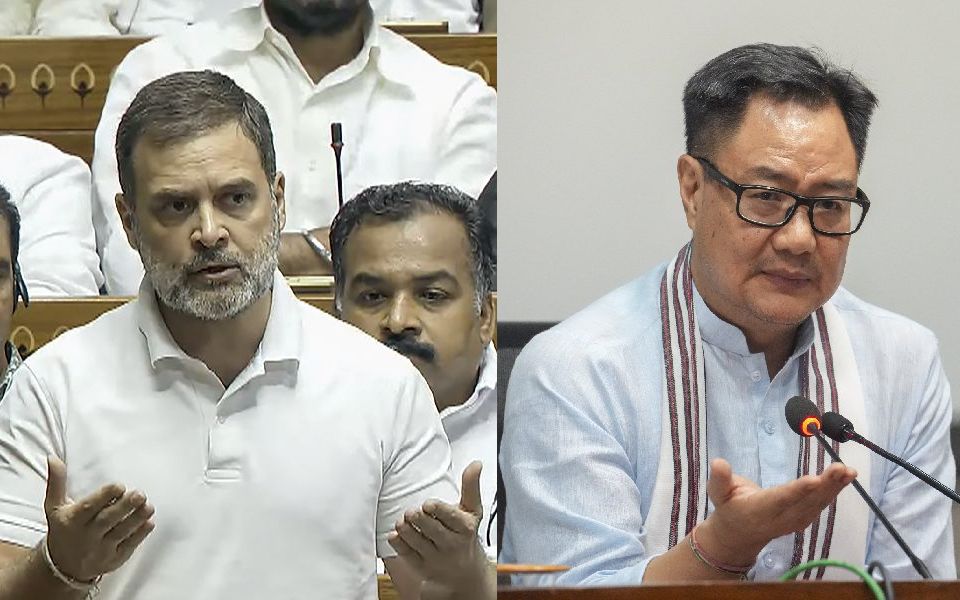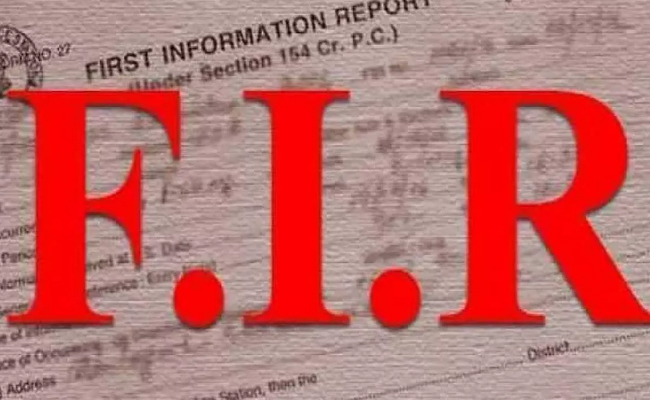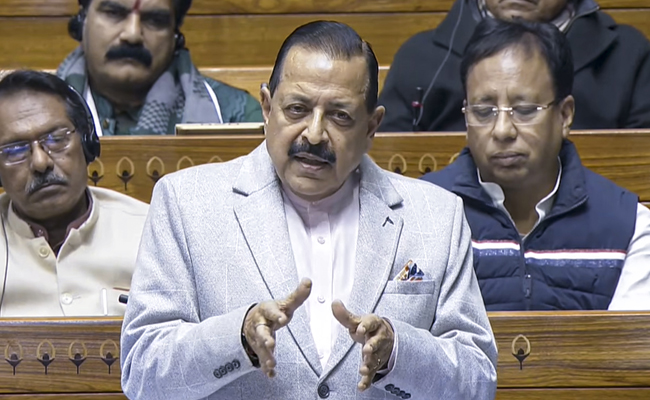New Delhi, April 16: Union Minister of Parliamentary Affairs and Minority Affairs Kiren Rijiju has questioned Congress MP and Leader of Opposition in the Lok Sabha, Rahul Gandhi, for not speaking during the recent debate on the Waqf (Amendment) Bill, 2025. Rijiju also noted that senior Congress leader Priyanka Gandhi was absent during the voting process in Parliament.
Speaking during an interview with ANI, Rijiju expressed surprise at the Congress leadership's silence on what he termed a “landmark bill.” He said, “I was surprised. Even Priyanka Gandhi was not present during the voting, she was absent.”
He further remarked that Rahul Gandhi came to vote but did not participate in the debate or make any remarks during the parliamentary proceedings. “Rahul Gandhi also came much later to vote. He did not take part in the proceedings, also he did not speak,” Rijiju said.
Rijiju speculated on possible reasons for Gandhi’s silence. “One of the reasons could be the huge pressure from the Christian community for the Congress party and for other MPs to support the Waqf Act. Secondly, maybe he wants to play a safe game, and whatever you speak on this landmark bill will remain on record. This was an important bill on which important leaders should have spoken,” he added.
The Waqf (Amendment) Bill, 2025 has drawn attention and criticism from various quarters, including opposition parties and minority groups. While the ruling BJP maintains that the amendments aim to improve transparency and governance of Waqf properties, critics argue that the bill threatens the autonomy of Waqf boards and could lead to interference in Muslim religious matters.
Let the Truth be known. If you read VB and like VB, please be a VB Supporter and Help us deliver the Truth to one and all.
Bengaluru (PTI): A woman was booked on charges of obstructing a police inspector from discharging his official duties and threatening to commit suicide if he did not accept her love proposal, police said on Wednesday.
The 45-year-old inspector attached to the Ramamurthy Nagar Police Station here alleged that the woman repeatedly harassed him, they said.
According to his complaint, the harassment began on October 30, when he started receiving calls from an unknown woman from multiple phone numbers.
During these calls, she allegedly spoke incoherently and claimed to have close links with several highly placed individuals, including the Chief Minister, Deputy CM, Home Minister and other political leaders.
Police said the woman sent photographs via WhatsApp purportedly showing herself with these dignitaries and claimed she could use their influence to compel the inspector to accept her proposal. She also allegedly threatened to use her contacts against him if he refused.
ALSO READ: “Bleeding on the road, I begged for help but no one came”: Bengaluru woman recounts husband’s death
The inspector said that he advised her to visit the police station and submit a written complaint if she had any grievance. However, she did not do so and instead continued to repeatedly call and send messages, which disturbed his official duties, the FIR said.
According to the FIR, on November 7, the woman allegedly visited his office and handed over an envelope containing some tablets along with handwritten letters. The letters contained emotionally charged and inappropriate content, and the woman claimed they were written using her blood, indicating obsessive behaviour.
Despite being clearly informed that the number she was contacting was an official departmental number meant for public service, she allegedly continued making unnecessary calls and messages, causing mental harassment and obstruction to his day-to-day duties, he alleged.
During the inquiry, police learnt that the woman had allegedly exhibited similar behaviour with other police and government officials in the past, it stated.
On December 12, she allegedly went to his police station and shouted and threatened to commit suicide and ruin the inspector's career if he did not respond to her proposal, prompting him to lodge a complaint.
"Based on the complaint, a case was registered against the woman under Sections 132 (assault or criminal force to deter a public servant from discharge of duty), 351(2) (criminal intimidation) and 221 (obstructing a public servant in discharge of public functions) of the Bharatiya Nyaya Sanhita at the Ramamurthy Nagar Police Station. The matter is under investigation," police said.





